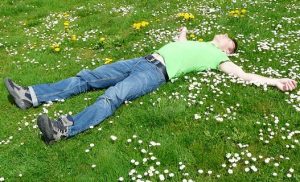There are lots of ways to deal with sleep issues and most of them involve putting something in your mouth. If you snore, you may use a mouthpiece like this to assist in getting that oxygen through the proper airway. If you grind or clench your teeth while sleeping you’re still going to be putting a mouthpiece in at night, just a different kind. For those who have trouble sleeping you might find  yourself looking towards sleep aids in a pill form. Whatever your method, there are pros and cons to each option. When it comes to sleeping pills a lot of people tend to be concerned that it might cause dependency, which is a valid concern. Just like there are different types of sleep issues, there are different types of sleeping pills:
yourself looking towards sleep aids in a pill form. Whatever your method, there are pros and cons to each option. When it comes to sleeping pills a lot of people tend to be concerned that it might cause dependency, which is a valid concern. Just like there are different types of sleep issues, there are different types of sleeping pills:
Not all sleeping pills are created equal, and not all of them work for every type of sleep problem. That’s why the American Academy of Sleep Medicine has released a first-of-its-kind set of guidelines for doctors on how to prescribe—or not prescribe—14 different medications and supplements for the treatment of chronic insomnia in adults.
About 10% of people meet the criteria for chronic insomnia, which lasts at least three months and occurs at least three times a week. The new guidelines suggest that certain medications may be helpful in addition to talk therapy, which should continue to be a first line of treatment for people struggling with ongoing sleep issues.
Some drugs, for example, should be prescribed to those who have trouble falling asleep (sleep onset insomnia). These include zaleplon (Sonata), triazolam (Halcion), and ramelteon (Rozerem), the new report states.
Other drugs are recommended for treating people who have trouble staying asleep throughout the night, classified as sleep maintenance insomnia. These include suvorexant (Belsomra) and doxepin (Silenor, Zonalon, and Prudoxin).
A few medications were given the green light for both types of insomnia: Eszopiclone (Lunesta), zolpidem (Ambien, Edluar, Intermezzo, and Zolpimist), and temazepam (Restoril) are suggested for either sleep onset or sleep maintenance problems.
The difference in recommendations is largely because some drugs last longer in the body than others, says lead author Michael J. Sateia, MD, Professor Emeritus of psychiatry and sleep medicine at The Geisel School of Medicine at Dartmouth. “It’s a reminder to clinicians that it’s important to choose an agent that has an appropriate duration of action for the particular type of insomnia you’re treating,” he says.
Dr. Sateia points out that these recommendations are only for long-term cases of insomnia. “What we’ve laid out here does not necessarily apply to the very common occasional night or a few intermittent nights of poor sleep,” he says.
He also stresses that the recommendations are based on the best available data from clinical trials, and aren’t meant to be the final word on whether a doctor prescribes them.
Every person is created differently and that’s why it’s important to realize that what works for one person may not work for another. We all have different factors to consider and different issues at play. Even general terms like insomnia don’t relate the fact that there is more than one kind of insomnia. Most people hear that word and think ‘Oh, a person who can’t sleep at night’ when that might not be the only thing at play. The point is that just because you try one thing and it doesn’t work doesn’t mean that you are doomed to never getting rest. Perhaps you need to spend a night in a sleep lab to find out just what exactly is going on when your eyes are closed. Maybe you need to start a journal at your bedside where you can clearly take notes on times and situations when you wake up or have trouble sleeping. Taking that information to your next health care appointment can teach your health care professional so much. There is hope.

 you were younger. Our bodies aren’t growing any more so there is no need to snooze for extended periods of time. It’s hard to get in that mindframe, however, that the 6 hours you’ve been getting are actually enough when you’re mentally exhausted. It’s important to realize, however,that too much sleep isn’t good for you:
you were younger. Our bodies aren’t growing any more so there is no need to snooze for extended periods of time. It’s hard to get in that mindframe, however, that the 6 hours you’ve been getting are actually enough when you’re mentally exhausted. It’s important to realize, however,that too much sleep isn’t good for you: There are some simple truths, however, and a key one is that we all need a good amount of sleep to survive. For most people, that means anywhere from 6-8 hours of sleep per night. This is the same kind of sleep that can be easily interrupted by snoring, which is why many people may be overestimating the sheer amount of sleep they’re actually receiving.
There are some simple truths, however, and a key one is that we all need a good amount of sleep to survive. For most people, that means anywhere from 6-8 hours of sleep per night. This is the same kind of sleep that can be easily interrupted by snoring, which is why many people may be overestimating the sheer amount of sleep they’re actually receiving.